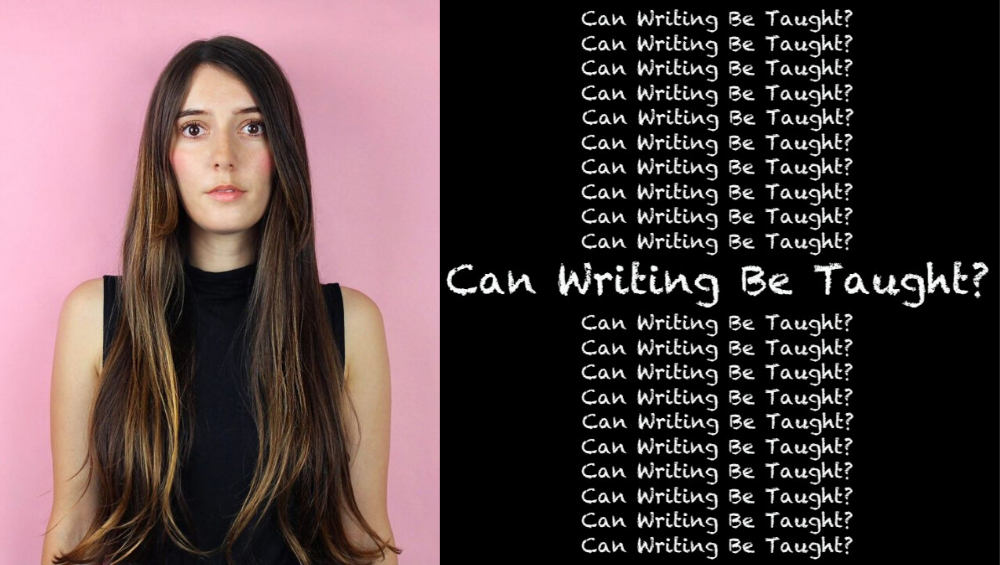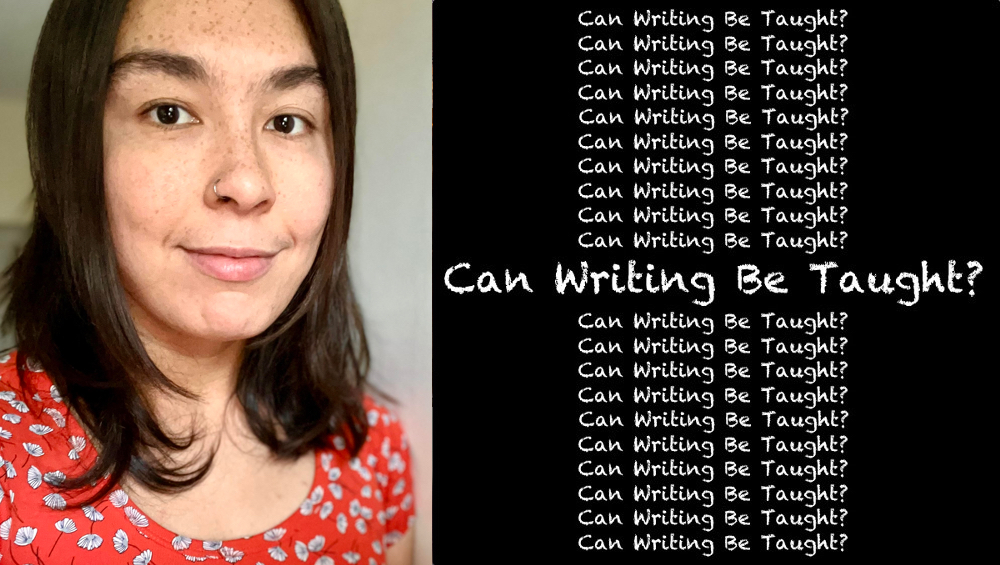Advice
Hot, Medium, or Mild? Jenessa Abrams Values How You Want to be Critiqued
Ten questions about writing with author and Catapult instructor Jenessa Abrams

In our series “Can Writing Be Taught?”, we partner with Catapult to ask their course instructors all our burning questions about the process of teaching writing. This month, we’re featuring Jenessa Abrams, an essayist, fiction writer, literary translator, and practitioner of Narrative Medicine. Check out the 4-week online non-fiction workshop Abrams is teaching about decentering the reviewer, and instead reviewing books through a social and political lens. We talked to her about good and evil, chocolate caramels, and why baking is a writer’s ideal hobby.
What’s the best thing you’ve ever gotten out of a writing class or workshop as a student?
Hot, Medium, or Mild
At the start of a nonfiction workshop in college, Cris Beam said: “Before we talk about your work, we need to know how you want us to talk about it. Tell us, on a scale of hot-to-medium-to-mild, what level of intensity you’re ready for.”
The sound of my relief was audible. The suggestion that my feelings mattered, that bleeding out on the page might affect me psychologically, that I could be serious about bettering my craft without sacrificing my safety, was nothing short of life changing. Her care gave me permission to write into experiences of danger with the knowledge that, in her hands, I’d be treated with respect and dignity.
What’s the worst thing you’ve ever gotten out of a writing class or workshop as a student?
I would not have guessed anyone could misunderstand this assignment so thoroughly.
I would never encourage a student to give up. Writing can save you. It saved me.
A college professor scrawled that on the last page of my weekly creative writing assignment (I photographed it). His prompt instructed us to tell a story from a collective perspective. Usually, weekly assignments were brief sketches, the seeds of something, a few pages at most. But that prompt unearthed something inside me. A story I’d been circling around, really hiding from, emerged when I wrote it from the vantage point of two children instead of one. I turned in an eight- or ten-page story. My professor didn’t comment on a single moment, word, sentence, or phrase in the piece besides his closing assertion that I’d misunderstood what he wanted.
Writing isn’t for your professor. Writing is for yourself and for your reader and for the artform.
What is the lesson or piece of writing advice you return to most as an instructor?
The first draft of a novel is you telling yourself the story.
I read that advice shortly after finishing the first draft of my debut novel. I’d sent the draft off to my agent in a flurry, working on a two-month deadline that meant the draft was really hundreds of pages of ideas, bones, sketches of who my characters were, slivers of what they wanted. The novel was stuck behind fogged glass. You could see the shape of something if you looked closely, but so much of it was still blurry. I so badly wanted that advice to be untrue, but it wasn’t. Very often, our first drafts are singular, magical, delicate sketches of what our stories or novels or memoirs will become, but in the beginning, we’re writing them to figure out what the story is. In some ways, that’s the hardest part. Once we know the story, once we have distance from it, then we can shape it into something meaningful for our readers.
Does everyone “have a novel in them”?
To me, that question is a bit like the question: Are people born inherently good? Maybe. Maybe not. But I certainly don’t have the power to determine that for someone else (frankly no one should). I do think everyone has a story inside them. The story of why they are who they are. Of what happened to them. That story isn’t justification for violence or cruelty, but it can help us understand them better. I wish more people had the privilege of time and space to tell theirs.
Would you ever encourage a student to give up writing? Under what circumstances?
In my senior year of college, I had a professor (see question 2) who, during our final workshop, which doubled as a holiday party at his home, announced to the class that I was not talented enough to be a real writer. Then he coaxed my classmates along, encouraging them to say disparaging things about me. I sat on his sofa, pinching the fat on my thigh, trying not to cry. Then he placed a chocolate caramel—a caramel I’d brought him as a gift—into his mouth and smiled. So, no. I would never encourage a student to give up. Writing can save you. It saved me. Not everyone will get published. But writers don’t write for the sole purpose of publication. At least they shouldn’t. Writers write to tell a story, to make someone feel something, to help them understand themselves better, to figure out what they think and who they are.
What’s more valuable in a workshop, praise or criticism?
The moment you let someone else into the room, the room stops being yours.
At its worst, praise can artificially inflate a writer’s ego, discouraging them from probing their work and trying to make it better, but at its best, praise can make a vulnerable writer feel like they matter, like their perspective is valid, like even if they don’t conform to an arbitrary style or writing exercise or way of expressing themselves, that doesn’t mean their art is any less important. The best workshops begin with praise, then move into criticism.
Should students write with publication in mind? Why or why not?
See question 3.
Fear is the crushing weight on the keyboard. Preventing us from facing our shame, our anxieties, our darkness. Write without thinking about how anyone will feel when they read it. The moment you let someone else into the room, the room stops being yours. Stay in that room by yourself as long as you can. Make the thing that only you can make. Then revise the hell out of it.
In one or two sentences, what’s your opinion of these writing maxims?
There is no one size fits all. In anything. Writing or life. Take the advice that speaks to you and discard the rest.
- Kill your darlings: Some sentences sound like velvet, but don’t make you feel anything. Cut them, but save them in a separate document. Tell yourself you’ll use them later. Maybe you will. Maybe you won’t.
- Show don’t tell: There’s no shame in saying something plainly. Abstraction often creates distance. Go ahead and just name the thing.
- Write what you know: Write from an emotional truth, but let that truth lead you into spaces that are unfamiliar to you.
- Character is plot: I used to refuse to let anything happen to my characters. Their stuck-ness was the story I was telling. It turns out that we’re always feeling and changing and growing and regressing and backpedaling even when we’re depressed and unmoving.
What’s the best hobby for writers?
For me, the answer is baking. I think the best hobbies are ones that allow writers to complete a task from start to finish, preferably with tangible results of their labor, like coarsely salted pretzel rolls or sugared rhubarb tarts. The writing process, from draft to-revision-to-submission-to-rejection-to-re-submission-to-eventual publication is so long, so shapeless, and so often lacking in hope, that having proof, something one can hold in their hands, makes the journey a little easier.
What’s the best workshop snack?
Anything that helps make you feel safe or more comfortable is advisable. My favorite is a box of chocolate caramels (see question 5).








